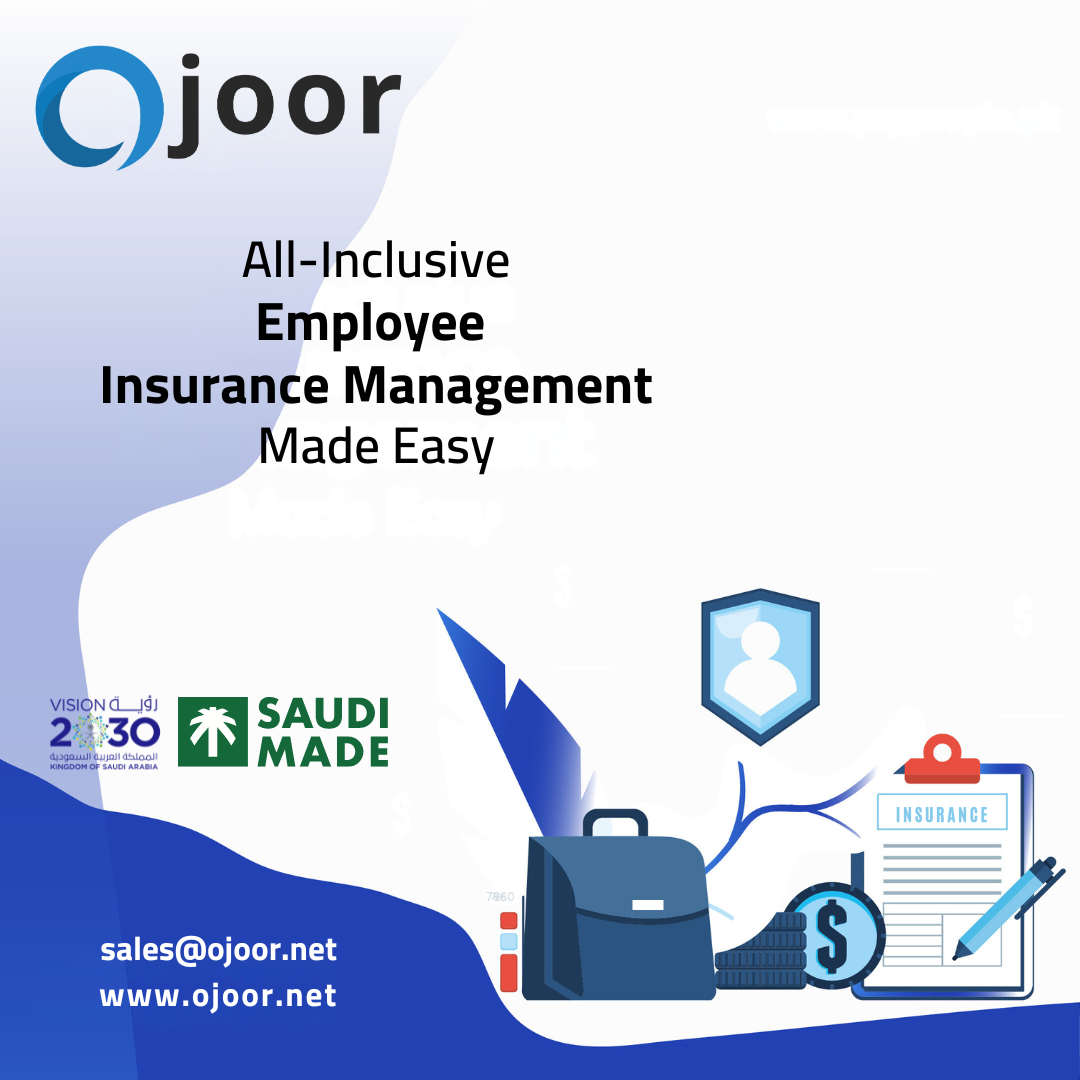Ojoor # 1 is one of the top HR System in Saudi Arabia where data breaches and cyber threats are increasingly common, and the security and confidentiality of employee data have become paramount concerns for organizations. Human Resources (HR) systems, which manage sensitive employee information, play a crucial role in safeguarding this data. Effective HR systems implement a range of security measures and practices to ensure that employee data remains protected from unauthorized access and breaches. This essay explores how HR systems ensure the security and confidentiality of employee data through various strategies and technologies.
Click to Start Whatsapp Chatbot with Sales
Mobile: +966547315697
Email: sales@Ojoor.net
Ojoor #1 HR System in Saudi Arabia

Data Encryption
Encryption in Transit
Data encryption is a fundamental security measure that protects information as it travels across networks. HR System in Saudi Arabia uses encryption protocols such as Secure Sockets Layer (SSL) or Transport Layer Security (TLS) to encrypt data transmitted between users and the system. This ensures that sensitive information, including personal identification details and payroll data, is shielded from interception during transmission.
Encryption at Rest
Encryption at rest refers to the protection of data stored on servers or databases. HR systems employ encryption algorithms to encode data when it is saved on disk, making it unreadable without the appropriate decryption key. This prevents unauthorized access to sensitive information, even if a data breach occurs and attackers gain access to the storage infrastructure.
Access Controls
Role-Based Access Control (RBAC)
HR systems implement Role-Based Access Control (RBAC) to restrict access to sensitive data based on user roles and responsibilities. Each user is assigned a role with specific permissions, ensuring that they only have access to the data necessary for their job functions. For example, HR managers may have access to comprehensive employee records, while regular employees can only view their own information.
Multi-Factor Authentication (MFA)
Multi-Factor Authentication (MFA) adds an extra layer of security by requiring users to provide two or more forms of verification before accessing the system. MFA typically combines something the user knows (e.g., a password), something the user has (e.g., a mobile device), and something the user is (e.g., biometric data). This additional verification step helps protect against unauthorized access, even if login credentials are compromised.
Audit Trails and Monitoring
Activity Logging
HR systems maintain detailed audit trails that log all user activities and system transactions. These logs include information about who accessed the system, what actions were performed, and when they occurred. Activity logging helps organizations track access to sensitive data, identify potential security breaches, and ensure accountability.
Real-Time Monitoring
Real-time monitoring tools analyze system activity and user behavior to detect and respond to suspicious activities promptly. HR systems use intrusion detection systems (IDS) and security information and event management (SIEM) solutions to monitor for unusual patterns or unauthorized access attempts. This proactive approach helps prevent data breaches and minimizes potential damage.
Data Backup and Recovery
Regular Backups
Regular data backups are essential for protecting against data loss and ensuring business continuity. HR System in Saudi Arabia performs periodic backups of employee data to secure locations, such as off-site servers or cloud storage. These backups ensure that data can be restored in the event of hardware failures, accidental deletions, or cyberattacks.
Disaster Recovery Planning
Disaster recovery planning involves creating strategies and procedures for recovering data and restoring operations after a significant disruption. HR systems include disaster recovery plans that outline steps for data restoration, system reconstitution, and communication with stakeholders. Effective disaster recovery planning ensures that employee data remains protected and accessible during emergencies.

Compliance with Regulations
Data Protection Regulations
Employee Management Software in Saudi Arabia must comply with data protection regulations that govern the handling of employee information. Regulations such as the General Data Protection Regulation (GDPR) in the European Union, the California Consumer Privacy Act (CCPA) in the United States, and local data protection laws in various countries set standards for data privacy and security. HR systems incorporate features to comply with these regulations, including data access controls, consent management, and data subject rights.
Industry-Specific Standards
Certain industries have specific data protection standards that HR systems must adhere to. For example, the healthcare industry in the U.S. follows the Health Insurance Portability and Accountability Act (HIPAA), which mandates strict security measures for patient data. HR systems in such industries implement additional security features to meet industry-specific compliance requirements.
Data Minimization and Retention
Data Minimization
Data minimization involves collecting and storing only the data necessary for operational purposes. HR systems adhere to data minimization principles by limiting the collection of personal information to what is essential for HR functions. This reduces the risk of exposure and ensures that only relevant data is retained.
Data Retention Policies
HR systems implement data retention policies that specify how long employee data should be kept and when it should be deleted. These policies are designed to comply with legal and regulatory requirements while minimizing the risk of data breaches. Data retention policies ensure that data is only stored for as long as needed and securely disposed of when no longer required.
Secure Software Development
Secure Coding Practices
HR systems are developed using secure coding practices that mitigate vulnerabilities and reduce the risk of security flaws. Secure coding involves following best practices, such as input validation, output encoding, and secure authentication mechanisms. By addressing security concerns during the development phase, HR systems are less likely to have exploitable vulnerabilities.
Regular Security Assessments
Regular security assessments, including vulnerability scans and penetration testing, help identify and address potential weaknesses in HR systems. These assessments are conducted by security experts who simulate attacks to evaluate the system’s resilience. Findings from security assessments are used to improve system security and address any identified vulnerabilities.
User Training and Awareness
Security Training
Leave Management System in Saudi Arabia provide security training for users to raise awareness about best practices for protecting sensitive data. Training programs cover topics such as password management, phishing prevention, and recognizing suspicious activities. Educating users about security risks and proper handling of employee data helps prevent human errors and reduces the likelihood of security incidents.
Ongoing Awareness Programs
Ongoing security awareness programs reinforce the importance of data protection and keep users informed about emerging threats. Regular updates and reminders help maintain a culture of security and ensure that employees remain vigilant in their data protection practices.
Conclusion
Ensuring the security and confidentiality of employee data is a critical responsibility for HR systems. By implementing a comprehensive range of security measures, including data encryption, access controls, audit trails, and compliance with regulations, HR systems protect sensitive information from unauthorized access and breaches. Additionally, practices such as regular data backups, secure software development, and user training contribute to the overall security posture of HR systems. As organizations continue to rely on digital solutions for managing employee data, maintaining robust security practices will be essential for safeguarding this information and ensuring the trust and confidence of employees.
Click to Start Whatsapp Chatbot with Sales
Mobile: +966547315697
Email: sales@Ojoor.net
HR System in Saudi Arabia
HR System in Saudi Arabia
HR System in Saudi Arabia
HR System in Saudi Arabia ensure the security of employee data similar software solutions prices were updated on 2025-06-16T04:16:25+00:00 in Saudi Arabia in Mecca, Medina, Riyadh, Khamis Mushait, Yanbu, Jeddah, Dammam, Unaizah, Uqair, Ha’il, Ta if, Al Bahah, Dhahran, King Abdullah Economic City, Najran, Diriyah, Qatif, Khafji, Jubail, Abqaiq, List of Cities and Towns in Saudi Arabia, Ras Tanura, Turubah, Jazan Economic City, Knowledge Economic City, Medina, Khobar, Abha, Tabuk, Saudi Arabia, similar software solutions prices were updated on 2025-06-16T04:16:25+00:00 We also provide in Saudi Arabia services solutions company in Hafar Al-Batin, Udhailiyah, Al-Awamiyah, Hofuf, Hautat Sudair, Buraidah, Tayma, Duba, ‘uyayna, Saihat, Al-Kharj, Al-ula, Jizan, Rumailah, Ar Rass, Arar, Shaybah, Al Majma’ah, Rabigh, Dhurma, Haradh, List of Saudi Cities by Gdp Per Capita, Badr, Sudair Industrial City, Baljurashi, Shaqraa, Al-Khutt, Habala, Ad Dawadimi, Dawadmi, Layla, similar software solutions prices were updated on 2025-06-16T04:16:25+00:00 Price is SAR 100 and this was updated on updated on 2025-06-16T04:16:25+00:00 similar HR System in Saudi Arabia ensure the security of employee data software solutions prices were updated on 2025-06-16T04:16:25+00:00 in Saudi Arabia in Haql, Afif, Al-Abwa, Farasan, Al-Jaroudiya, Thadig, Al-Thuqbah, Al Wajh, Almardmah, Al-Zilfi, Muzahmiyya, Prince Abdul Aziz Bin Mousaed Economic City, Tharmada’a, Skaka, Um Al-Sahek, Sharurah, Tanomah, Bisha, Dahaban, Al Qunfudhah, Qurayyat, Saudi Arabia, Ha’ir, as Sulayyil, Al Lith, Turaif, Al-Gway’iyyah, Samtah, Wadi Ad-Dawasir, Az Zaimah, Safwa City, Jalajil, Harmah, Mastoorah, Hotat Bani Tamim, Jabal Umm Al Ru’us, Rafha, Qaisumah, Al-Ghat, Hajrah, Al-Hareeq. Excerpt: Jeddah (also spelled Jiddah, Jidda, or Jedda; Arabic: Jidda) is a Saudi Arabian city located on the coast of the Red Sea and is the major urban center of western Saudi Arabia similar software solutions prices were updated on 2025-06-16T04:16:25+00:00 Price is SAR 100 and this was updated on updated on 2025-06-16T04:16:25+00:00
7-24-2024



